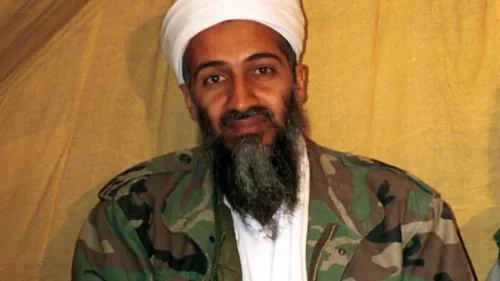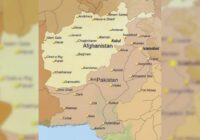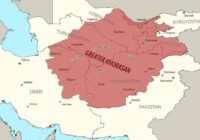Since the end of Pakistan’s general election on February 8, 2024, the nation has craved a socio-economic revival. However, this prospect is under attack as its terror affairs spiral into chaos. Its recent attack on Chinese nationals carries the potential to derail its China-backed revival as well as its cross-firing on resurgent ISIS and Baloch terrorist activities.
Politics of terror
For decades, Pakistan has used state-sponsored terror as an instrument to buy geopolitical rent from the United States via Afghanistan. In the past, Pakistan gave operational control to terror proxies to cultivate ground for unconventional warfare against India.
However, the strategy of using terror did not last long. On May 2, 2011, the US killed al-Qaeda chief Osama bin Laden in the Pakistani city of Abbottabad. This incident sowed seeds of distrust between the two nations.
Similarly, Iran supported Pakistan in the 1971 war against India. However, ideological confrontations have led to distrust and hostility between the parties. Iran also believes that Pakistan is sponsoring Baloch jihadists to please the West and Saudi Arabia.
Evidently, politics of terror have cost Pakistan heavily, without much reward. The state is clearly weakening, as several signs indicate. The Afghan Taliban’s is being more assertive than it otherwise would be. Pakistan is targeting Tehrik-i-Taliban Pakistan (TTP), the Islamist nationalist network opposing the Pakistani military. Pakistan’s approach against Afghanistan’s Supreme Council Quetta Shura is also telling.
Middle Eastern terror conflicts have increased following Israel’s 2023 invasion of Gaza. Pakistan seems to be negotiating with a few proxies, and allegedly with ISIS. These actions may be in order to de-escalate terror attacks in Pakistan and deter the TTP.
The nation may also be seeking openings for security and strategic cooperation with the West. In December 2023, Pakistani Army Chief Asim Munir and former Inter-Services Intelligence (ISI) chief Nadeem Anjum, visited Washington, DC. The US didn’t show any interest in engaging with Pakistan; it is already locked in multiple fronts from Ukraine to Israel. The nation also believes that TTP is already weakening the ISIS threat.
However, the ISIS attacks in Iran in January paint a worrisome picture of regional security. The attack on Moscow’s Crocus City Hall in March stoked fear of revival of ISIS regional branches, especially in Central Asia.
Islamization and flashpoints
Pakistan’s politics of terror typically end poorly, which complicates its negotiation of geopolitical rent. It suffers from the usual dilemma that comes with terror politics; proxies can be useful for some time, but eventually, their radicalism becomes too extreme.
One can argue that the US, too, had relations with terror proxies. In December 1979, the CIA’s Operation Cyclone provided arms and logistics to jihadist groups in Afghanistan to drive out the Soviet Union. Unlike Pakistan’s relationship with proxies, however, this was a limited relationship.
Pakistan’s continued engagement with proxies may come from former president Muhammad Zia-ul-Haq’s regime in the 1970s and 1980s. He established Sharia Benches in the High Court to align the nation’s legal statutes with Islamic doctrine. His Islamization policies brought in officers who wanted to pursue an active Islamic agenda in military matters. A new breed of military thinkers and strategists also emerged. They pushed for a merger of social jihadism with military plans.
Islamization had far-reaching consequences. It led non-state actors, directed by Pakistan’s ISI, to quell opposition to Zia’s pro-Sunni Islamization measures. This in turn created the extremist Jaish-e-Mohammad and Soviet jihad groups.
Zia’s radical Islamization continues to permeate the Pakistani Army, which has prevented action against Islamic terror groups such as TTP. The virus of Islamization has removed Pakistan’s ability to think like a rational nation, putting it in a state of poly-crises.
In January, Pakistan witnessed new flashpoints, including Iranian strikes against the Baluch terror group Jaish al-Adl. This attack on the Pakistani province of Balochistan further deteriorated Iran–Pakistan relations.
Pakistan’s response was limited to diplomatic protests and the expulsion of Iran’s ambassador. However, Pakistan likewise carried out retaliatory precision strikes against Baluch camps on Iranian territory. This indicates a strategy of deterrence similar to the one it used against India in 2019.
Pakistan does have the option to use force against Iran; it did so in a limited manner on January 17, when it launched a series of air and artillery strikes inside Iran’s Sistan and Balochistan province. The limited strike demonstrated Pakistan’s deterrence capabilities, but terror groups inside Pakistan continue to complicate its situation.
Attacks on Chinese workers
On October 7, Baloch terrorists in the Pakistani city of Karachi conducted a suicide bombing that killed two Chinese nationals. Before that, on March 26, Baloch insurgents conducted a suicide bombing that killed five Chinese workers in Pakistan’s Khyber Pakhtunkhwa province. These are merely the most recent instances of deadly attacks on Chinese nationals. In 2022, a suicide bombing in Karachi killed three Chinese instructors. In 2021, yet another suicide bombing killed two Chinese nationals in the Gwadar region.
These incidents have raised serious questions over Pakistan’s credentials of being a safe investment for China. In defense, China shut its firms and launched a sound probe into these incidents.
Pakistan is attempting to revive its economic situation and its relations with China, but such incidents might jeopardize long-term Pakistan–China economic relations. The issue of terror attacks paints Pakistan as an unsafe investment, to China and the rest of the world. Regardless, for the time being, China intends to collaborate with Pakistan to protect its personnel.
For Pakistan, going full throttle against insurgents raises the concern of a mass insurgency. However, Pakistan has gradually begun cross-border operations in relation to Afghanistan. The consequences may put Pakistan into a severe security headache as the capital of Islamabad is now caught in a twin terror trap with the TTP and Baloch militants. If flared, this situation could heavily impede Pakistan’s strategic and economic interests.
[Lee Thompson-Kolar edited this piece.]
The views expressed in this article are the author’s own and do not necessarily reflect Fair Observer’s editorial policy.
Support Fair Observer
We rely on your support for our independence, diversity and quality.
For more than 10 years, Fair Observer has been free, fair and independent. No billionaire owns us, no advertisers control us. We are a reader-supported nonprofit. Unlike many other publications, we keep our content free for readers regardless of where they live or whether they can afford to pay. We have no paywalls and no ads.
In the post-truth era of fake news, echo chambers and filter bubbles, we publish a plurality of perspectives from around the world. Anyone can publish with us, but everyone goes through a rigorous editorial process. So, you get fact-checked, well-reasoned content instead of noise.
We publish 3,000+ voices from 90+ countries. We also conduct education and training programs
on subjects ranging from digital media and journalism to writing and critical thinking. This
doesn’t come cheap. Servers, editors, trainers and web developers cost
money.
Please consider supporting us on a regular basis as a recurring donor or a
sustaining member.
Will you support FO’s journalism?
We rely on your support for our independence, diversity and quality.











Comment